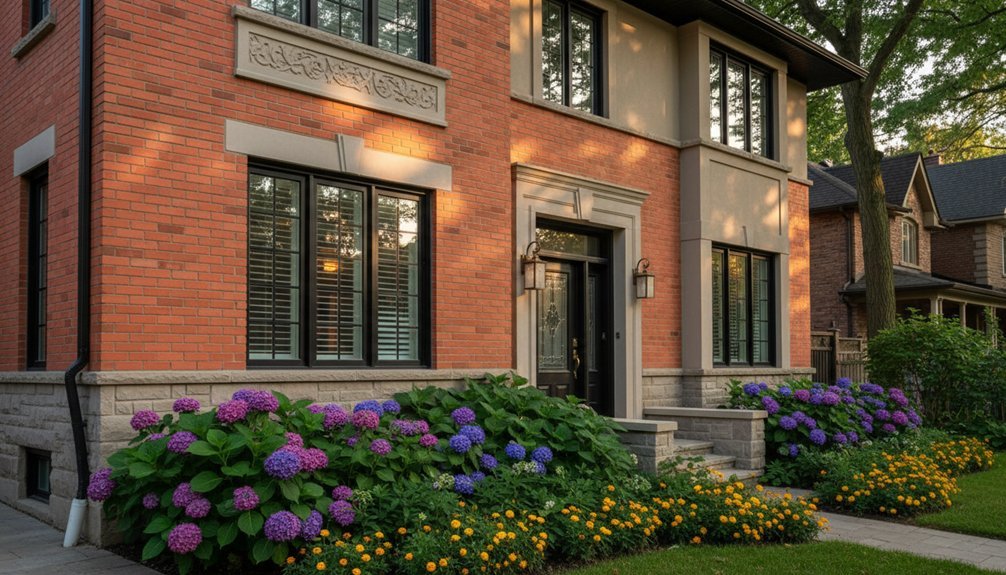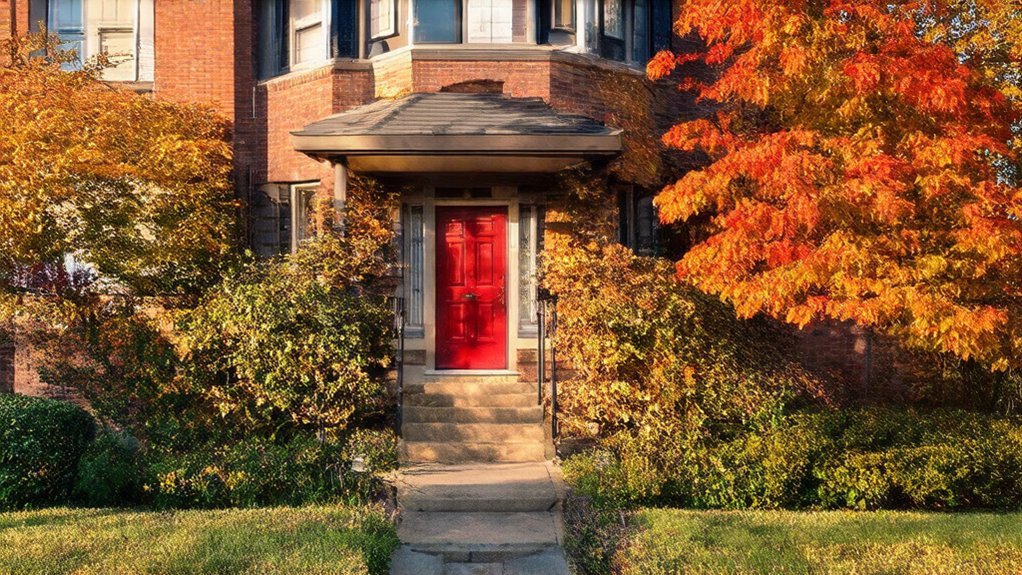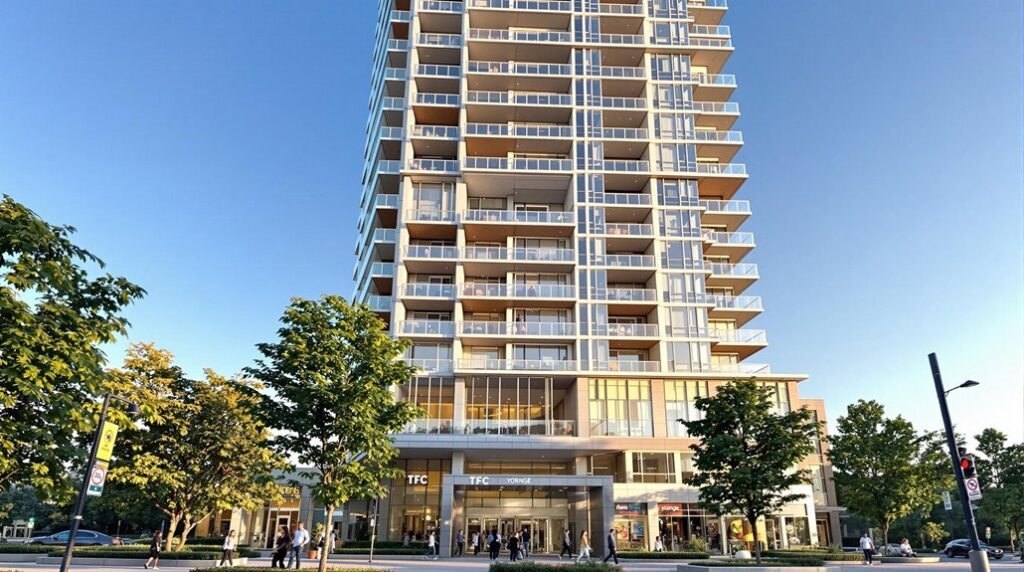Getting pre-approved for a mortgage is crucial in the home-buying process. It provides a clear understanding of your borrowing capacity and strengthens your negotiation position with sellers. Pre-approval helps you focus on homes within your budget and protects you from interest rate fluctuations. It also enhances your credibility, making you a more attractive buyer in competitive markets. By locking in an interest rate for up to 120 days, you gain financial stability while searching for your new home. Additionally, pre-approval aids in effective budgeting and better decision-making regarding your purchase. Discover more about obtaining pre-approval and handling potential refusals.
Key Takeaways
- Pre-approval clarifies your borrowing capacity and sets a realistic budget for your home search.
- It strengthens your negotiating position and demonstrates financial credibility to sellers.
- Pre-approval protects you from interest rate fluctuations by locking in a rate for 90 to 120 days.
- It streamlines your home search by focusing on properties within your budget, saving time and effort.
- Pre-approval enhances buyer credibility, giving you an edge in competitive markets and multiple offer situations.
Understanding Mortgage Pre-Approval
Getting pre-approved for a mortgage means a lender has evaluated your financial situation and determined the maximum loan amount you can qualify for. This process involves a thorough review of your credit history, income, assets, and debts. A lender will assess this information to verify you meet the criteria for a mortgage.
To get pre-approved, you’ll need to provide various personal and financial documents. These typically include pay stubs, tax returns, bank statements, and details about any existing debts. The lender will also conduct a credit check to assess your credit score and history. This detailed evaluation helps determine not only your eligibility but also the loan amount you can afford.
One key aspect of pre-approval is locking in an interest rate for a specific period, usually ranging from 90 to 120 days. This protects you from potential interest rate increases during this time frame, offering some financial stability as you search for a home.
Depending on the lender’s terminology, you might hear this process referred to as prequalification or preauthorization, but the goal remains the same: to provide a clear picture of your borrowing capacity.
Benefits of Pre-Approval
Pre-approval not only clarifies your borrowing capacity but also offers several strategic benefits in your home-buying journey. First and foremost, understanding how much you can borrow lets you set realistic price points, ensuring you search only within your budget. This prevents disappointment and keeps your expectations grounded.
Additionally, pre-approval significantly strengthens your negotiating position. Sellers are more likely to take your offer seriously because you’ve already demonstrated financial credibility. This can be a decisive factor in competitive markets where multiple bidders vie for the same property.
Another vital benefit is the protection against interest rate fluctuations. With a pre-approval, your rate can be locked in for a specific period, shielding you from possible rate hikes while you search for a home. This provides financial predictability and can save you money in the long run.
Streamlined Home Search
When you’re pre-approved for a mortgage, you can streamline your home search by focusing only on properties within your budget. This pre-approval allows you to set realistic price points, minimizing the frustration often associated with home hunting. By narrowing your focus, you avoid wasting time on homes that aren’t financially feasible, making your search more efficient.
Pre-approval also enables efficient decision-making. When you know your budget and financial readiness, you can confidently make offers on homes that match your criteria. This eliminates the need for aimless searches and reduces the number of potential disappointments from bidding on homes you can’t afford.
Clarity provided by pre-approval allows you to concentrate on finding the right home, rather than worrying about loan approval. This assures sellers of your credibility, increasing the likelihood that your offer will be taken seriously. Additionally, it reduces the likelihood of last-minute complications during the closing process.
In essence, mortgage pre-approval simplifies your approach to buying a home. By focusing on budget-friendly options, you’re more likely to find a home that meets your needs and guarantees a smoother transaction, ultimately streamlining the home buying process.
Effective Budgeting
Creating an effective budget becomes much easier when you know your pre-approved mortgage amount. With a clear picture of your budget, planning your monthly payments effectively becomes manageable. Pre-approval provides you with a detailed view of all costs considered upfront, ensuring better financial management from the very beginning.
Armed with your pre-approved amount, you can plan for other household needs and expenses more efficiently. This includes setting aside funds for closing costs, creating a structured budgeting strategy that’s sustainable and realistic. Knowing your mortgage limit allows for the effective allocation of financial resources, ensuring you’re prepared for all aspects of homeownership.
Additionally, this approach facilitates more informed decision-making during the home-buying process, leading to confident financial choices. You’ll avoid overextending your finances by having a pre-approved amount guide your budget limits. This prevents future financial stress and prepares you for the long-term commitment a mortgage entails.
Enhancing Buyer Credibility
By securing a mortgage pre-approval, you boost your credibility as a potential buyer in the eyes of sellers. This pre-approval showcases your financial stability and readiness to make a purchase. Sellers recognize that a pre-approved buyer is more likely to finalize the deal, making you stand out as a serious and reliable candidate.
When sellers see your pre-approval, they understand you’re genuinely interested in closing a deal, and this can give you a significant edge in competitive markets. It’s more than just a formality; it’s a demonstration of your commitment and preparedness. This can be especially beneficial when there are multiple offers on a property. Sellers often prioritize offers from pre-approved buyers since you’ve already cleared a critical financial hurdle.
In a market where demand often exceeds supply, having a pre-approval letter can set you apart. This small step can be the deciding factor in securing your desired home. By presenting yourself as a financially prepared buyer, you increase your chances of being considered by sellers, thereby enhancing your overall buying strength. Pre-approval not only solidifies your buying position but also builds trust with sellers from the outset.
Negotiating Power
A mortgage pre-approval enhances your negotiating power by proving your financial readiness to sellers. This step demonstrates your seriousness and commitment to purchasing a home, giving you an edge in competitive markets where multiple offers are common.
When you’re pre-approved, sellers recognize you as a qualified buyer, which can markedly increase your chances of securing a deal. They’re more likely to prioritize your offer because they can trust in your ability to finance the purchase. This trustworthiness sets you apart from other buyers who haven’t completed the pre-approval process.
Moreover, having a pre-approval can lead to more favorable terms and conditions in the negotiation process. Sellers may be more flexible with price or contingencies when they know you’re a reliable buyer. You’ll also be able to negotiate with confidence, fully aware of your financial capacity.
Additionally, securing a competitive interest rate through pre-approval means you’re better positioned to understand your budget constraints. This knowledge allows you to engage in negotiations without second-guessing your financial standing.
All these factors combined enhance your bargaining power, ultimately increasing your chances of a successful home purchase.
Protection From Rate Fluctuations
How does a mortgage pre-approval protect you from sudden interest rate hikes during the home buying process?
In essence, getting pre-approved for a mortgage locks in an interest rate for a period ranging from 90 to 120 days. This guarantee provides stability in a market where interest rates can fluctuate unpredictably.
When you’ve secured your rate, you can proceed confidently with your home search, knowing you won’t be affected by potential increases in interest rates.
This security allows you to make more informed and relaxed purchasing decisions, free from the anxiety of guessing where rates might head next.
Additionally, the protection from rate fluctuations means you’re not pressured to rush through the purchasing process. Without the fear of rising interest rates, you can take your time to thoroughly assess properties and make decisions that best suit your needs and financial situation.
Having a pre-approved mortgage means that when you finally find your dream home, you can proceed with the purchase smoothly, without the last-minute scramble to adjust to changing rates.
This advantage ensures you’re in a stronger position to complete your home buying journey successfully.
Where to Get Pre-Approved
You can get pre-approved for a mortgage from various sources, including mortgage lenders, banks, credit unions, and mortgage brokers. Each option provides unique benefits and services to suit different needs. Mortgage lenders directly provide the funds for your mortgage, giving you a straightforward path from assessment to funding.
Banks offer similar services but often come with a variety of other financial products that might be useful if you want to consolidate your banking needs. Credit unions tend to offer more personalized customer service and may have more favorable terms for members. They’re known for lower fees and competitive interest rates, making them an attractive choice.
Mortgage brokers, on the other hand, don’t provide the funds directly. Instead, they connect you with various lenders and products. This can be advantageous if you want to explore multiple offers to find the best deal.
Choosing the right source for pre-approval is essential. Not only does it determine your maximum mortgage amount and estimated payments, but it also locks in an interest rate for a specified period. This preparation will streamline your house hunting and enhance your credibility as a serious buyer.
Documents for Pre-Approval
To get pre-approved for a mortgage, gather and submit recent pay stubs, tax returns, and bank statements. These documents provide a detailed overview of your financial health, offering lenders insight into your income stability and ability to repay the loan.
Additionally, include documentation on any other income sources you may have, such as bonuses, rental properties, or freelance work. This information can strengthen your application by demonstrating diversified revenue streams.
Don’t forget to submit details on outstanding debts, including student loans, car loans, and credit card balances. Showing your existing financial obligations helps lenders gauge your debt-to-income ratio, an essential factor in the pre-approval process.
Disclose information on your assets as well. This includes savings accounts, retirement accounts, and investments. These assets can serve as reserves, reassuring lenders of your financial security even in uncertain times.
It’s vital to ensure all your documents are up-to-date and organized. Lenders appreciate a well-prepared applicant as it expedites the pre-approval process and demonstrates your seriousness about securing a mortgage.
Handling Pre-Approval Refusal
Facing a pre-approval refusal can be disheartening, but it offers an opportunity to reassess and improve your financial standing. Lenders may refuse a mortgage even after pre-approval, especially if the property doesn’t meet their standards. Each lender has unique guidelines and policies, which can impact the approval process. It’s essential to understand why your application was refused so you can address any issues and strengthen your application for the future.
If you’re refused, don’t lose hope. There are multiple options to explore. Consider applying for a lower loan amount, which may fit within a lender’s criteria more comfortably.
Alternatively, you might accept a higher interest rate, which can sometimes make lenders more willing to approve your mortgage. Another viable solution is to include a co-signer, whose financial stability can boost your application.
Conclusion
Getting pre-approved for a mortgage notably enhances your home-buying process’s efficiency and effectiveness. Remarkably, 68% of pre-approved buyers are more likely to have their offers accepted.
This step not only streamlines your home search but also fortifies your bargaining position, assists in accurate budgeting, and offers protection against rate fluctuations.
By understanding where to get pre-approved and the necessary documentation, you’re well-prepared to navigate any challenges, such as handling pre-approval refusal, ensuring a smoother journey to homeownership.
















